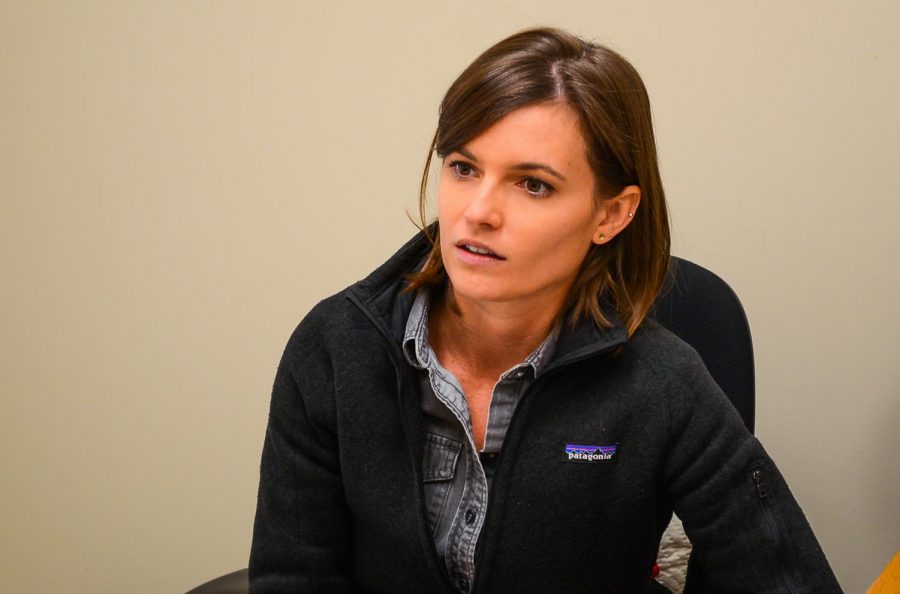WSU professor studies gender inclusivity in housing
GIESORC director says school has made strides for gender neutrality
Traci Gillig, assistant professor in the Edward R. Murrow College of Communication, discusses a new gender inclusive housing development on Oct. 9 in Murrow Hall.
October 23, 2019
A WSU professor developed a study to determine the role gender inclusivity plays in the development of youth.
Traci Gillig, assistant professor of communication, works with Leila Bighash, assistant professor of communication at the University of Arizona, on a study where they get direct feedback from youth about their social network based on gender inclusivity.
“We have so many spaces in our society right now that are only one gender. That includes things like sports team, and that’s not necessarily a bad thing,” Bighash said. “But what we have to think about is the types of friendships and relationships that those things encourage.”
Gillig said they are studying how gender-inclusive spaces can encourage young people to network and build friendships that can last lifetimes.
Gillig said she began going to Camp Brave Trails, an LGBTQ+ youth camp, around 2014. They have two locations, one in Los Angeles, California and one in Maryland. Gillig has visited both camp locations, but she has volunteered at the Los Angeles location for a couple of summers.
She said the first summer of her involvement with Brave Trails, she worked with the camp to design surveys for an evaluation of the program administered to about 40 campers. She never visited the camp that summer.
During the second summer, Gillig said she went on-site to administer surveys and see camp for the first time.
Gillig said she volunteered for a camp session during her third summer that allowed her to oversee the entire process. She has continued to do that for the past few summers.
The first survey about gender-inclusive housing was done with network data, where campers were asked who their closest friends were, she said. The survey was created to get a better idea of how younger generations developed friendships.
Gillig said the research team figured housing and gender may play a role in how friendships develop.
The social network part developed naturally over the course of the study by seeing how many campers would return, Gillig said. They noticed a pattern of campers being able to create a network and community.
Gillig said she worked with Bighash to study how social network analysis can be used to further understand how the youth makes decisions regarding their friendships.
Bighash said the study shines a light on social networking. The data gathered from the survey helps guide the conversation on how connections and relationships made as a youth can last a lifetime and help shape success.
“That’s not the point of this research but instead just kind of trying to say ‘how are we going to encourage spaces to come together?’” she said. “Physical space to come together wherever there’s people of all different backgrounds and all different genders.”
Matthew Jeffries, director of the Gender Identity/Expression and Sexual Orientation Resource Center at WSU, said the university has done a good job making sure students feel heard.
“In the last year we’ve allowed for diplomas to have chosen names,” Jeffries said. “Cougar Cards, [the] last year and a half, have now allowed chosen name. When we hear concerns from students, we really move forward with them.”
He said McCroskey Hall provides a gender inclusive space for students. McCroskey offers either single, double or triple rooms and there is a communal bathroom that everyone shares.
Jeffries said he helps student who do not get into McCroskey find a solution that works best for them.
Jeffries worked for three years with Housing and Residence Life at WSU, he said. He has used that experience to connect students with people at Housing and residence Life that can help them.
There are 117 gender inclusive bathrooms in Pullman, Jeffries said. Information for the bathrooms can be found on GIESORC’s website.
Jeffries said that different areas have their own building standards, but WSU has an internal standard that requires new buildings to contain a gender inclusive bathroom.






















